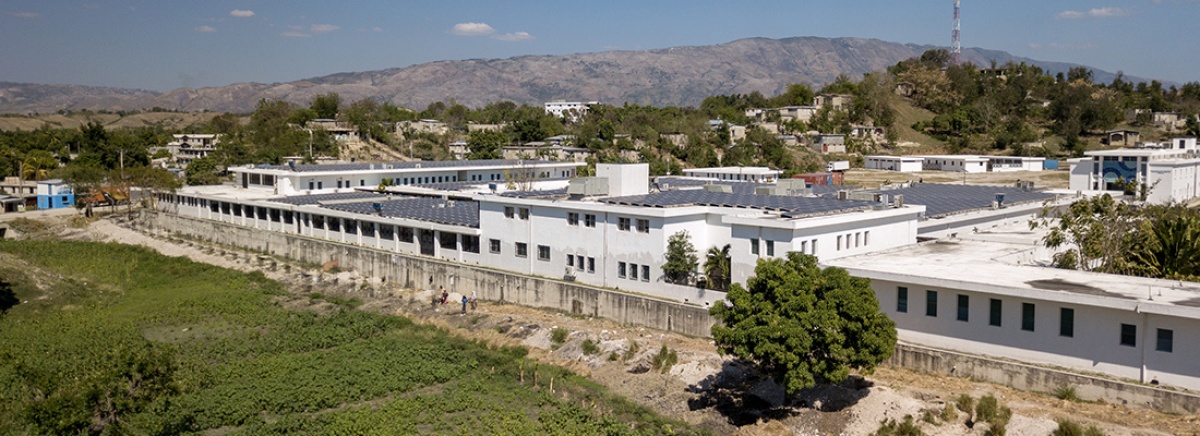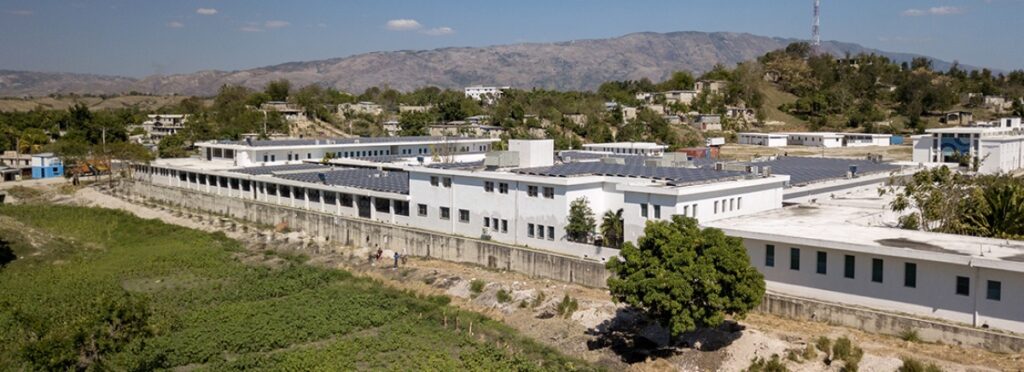Facilities Open, Staff Safe Following Haitian President’s Assassination

Staff provide continuous care through unrest, hurricanes, COVID-19
Posted on Jul 16, 2021

More than a week after the assassination of President Jovenel Moïse and the wounding of First Lady Martine Moïse, Zanmi Lasante facilities remain open, as they have through years of political and civil unrest, devastating hurricanes, and the current COVID-19 pandemic.
In the coming weeks and months, Zanmi Lasante, Partners In Health’s (PIH) sister organization in Haiti, will continue operating with added measures to ensure the safety of patients, staff, and the children at Zanmi Beni—all of whom are safe and have been accounted for following the most recent tragedy in Port-au-Prince.
Although the current political situation is fluid, as events continue to unfold following the assassination on July 7, Zanmi Lasante is committed to providing care to those who need it most, as clinicians and staff have done for nearly four decades. This is true, despite myriad obstacles—from fuel shortages and rampant inflation in the price of goods and services to gang violence and road blockages disrupting transportation of staff and patients.
Ongoing Care, for COVID-19 and Beyond
While some small clinics and local hospitals have temporarily shut their doors, Zanmi Lasante facilities continue to accept patients. This is especially important considering a second wave of COVID-19 infections is impacting the Caribbean nation and vaccines have yet to become publicly available. The first 500,000 doses arrived in the country on July 14, all of which were donated by the United States through COVAX. Health care and frontline workers are anticipated to receive these first doses. However, Haiti needs many more vaccines for their population of 11.5 million, or approximately 7.7 million adults eligible to receive the COVID-19 vaccine, as do other low-income countries. Globally, less than 1% of people living in low and middle-income countries have received at least one dose of a COVID-19 vaccine compared to 50% of people in high-income countries amid a rapidly spreading Delta variant.
As they await vaccines, Zanmi Lasante staff across three sites—Hôpital Universitaire de Mirebalais, Hôpital Sainte-Thérèse in Hinche, and Hôpital Saint-Nicolas de Saint-Marc—are actively testing, isolating, and treating patients with some of the most severe cases of COVID-19 in the country. In addition, the team has tested more than 23,000 migrants at Belladere, a city along the border between Haiti and the Dominican Republic.
To meet the needs of patients, clinicians have worked around the clock for 18 months. Like patients, they need to rest too, which is why Zanmi Lasante is currently working to secure volunteer nurses, intensive care unit physicians, and pathologists from the U.S., who are expected for additional support.
The global supply chain team continues to ensure necessary resources are available, such as oxygen, personal protective equipment, diagnostic tools, and pharmaceuticals. They do all this, despite constant challenges related to border closures and interruptions in the overall supply chain due to ongoing unrest and the pandemic.
While COVID-19 has the spotlight, patients seeking care for many health care needs continue to arrive at Zanmi Lasante-supported facilities. The team has consistently provided care and support to meet their needs—including malnutrition, cancer treatment, maternal and neonatal care, mental health, and social support—throughout the entirety of the pandemic.
In 2020 alone, 6,300 children were treated for malnutrition, more than 700 patients received cancer treatment, and 1,500 people benefited from mental health services—to name several of many key areas of care. And at Hôpital Universitaire de Mirebalais, the innovative Journey to 9 maternal health program has enrolled 800 expectant mothers since it began in 2019, with 95% of women choosing to give birth at the facility, compared to a nationwide rate of 36%.
As new details continue to emerge every day, it is unclear what will happen next in Haiti, but one thing is certain: Zanmi Lasante’s gates will remain open, and the team will do whatever it takes to ensure the people of Haiti receive the support they need for COVID-19 and their health care needs.
Article originally published on pih.org



